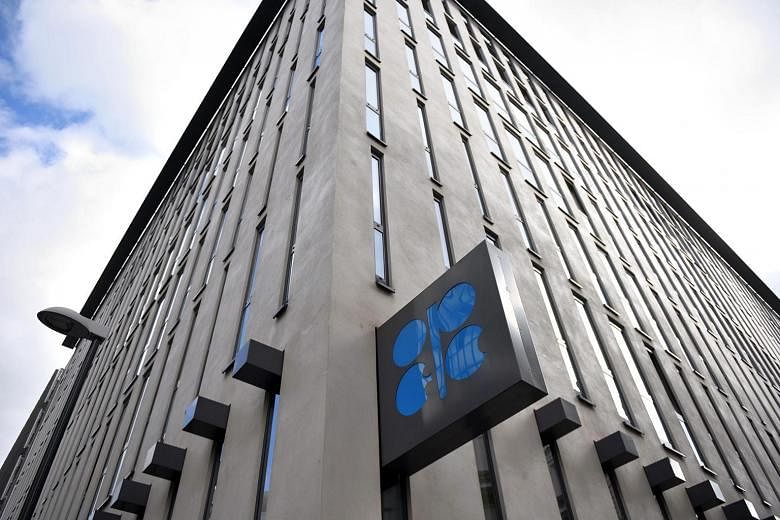VIENNA • Opec oil cartel failed to agree on a new oil production ceiling at a meeting yesterday, its secretary-general said, meaning the cartel's crude will continue to flow without formal constraints.
"To come up with a number is very difficult to do," the Organisation of Petroleum Exporting Countries' secretary-general Abdalla El-Badri told a news conference. "But at this time..., the number that we are producing is reasonable to the market, the market is accepting it, prices are moving."
Opec, which pumps around a third of the world's oil, abandoned in December its output target of 30 million barrels per day (bpd).
This target was, in any case, widely flouted, with total production by the 13-nation group around 32 million bpd. Iran, returning to the oil market after the lifting of sanctions, was opposed to a new target, preferring instead to impose quotas on individual Opec members.
Opec de facto leader Saudi Arabia had shown willingness to mend divisions earlier yesterday, with cash-strapped members demanding a new group ceiling. "We are going to be responsible but we are also going to be responsive," new Saudi Energy Minister Khalid al-Falih told reporters ahead of the meeting when asked whether Saudi Arabia would flood the market with new oil. Iran had, however, rejected any cap on production as it restores output following the removal of sanctions in January.
Tensions between the Sunni-led kingdom and the Shi'ite Islamic Republic have dominated several previous Opec meetings. Saudi Arabia effectively scuppered plans for a global production freeze in April. It said then that it would join the deal, which would also have involved non-Opec Russia, only if Iran agreed to freeze output.
Teheran argues it should be allowed to raise production to levels seen before the imposition of now-ended Western sanctions over Iran's nuclear programme.
At its previous meeting in December last year, Opec effectively allowed its 13 members to pump at will, which led to a glut. Prices crashed to US$27 per barrel in January as a result, their lowest in over a decade, but have since recovered to around US$50 due to global supply issues. Yesterday, Brent crude dropped 37 US cents to US$49.35 a barrel at 1.45 pm in London.
That "Opec could not agree on a relatively benign deal which would have been constructive for prices is a sign that political differences are undermining the organisation," said Mr Gary Ross, founder of US-based PIRA consultancy. "It is bearish short term for oil prices."
The oil cartel also said that it has appointed Nigeria's Mohammed Barkindo as its new secretary-general, replacing Mr Badri, a Libyan who has held the post since 2007. Mr Barkindo is the former head of the Nigerian National Petroleum Corp.
AGENCE FRANCE-PRESSE, REUTERS

